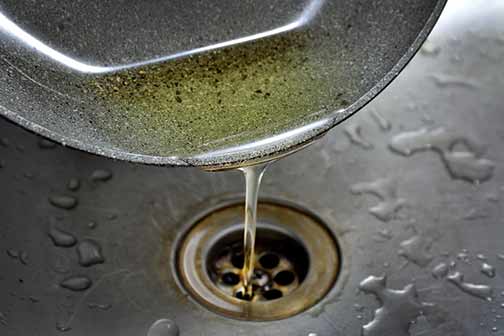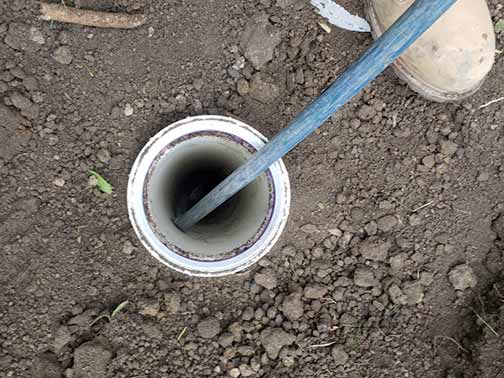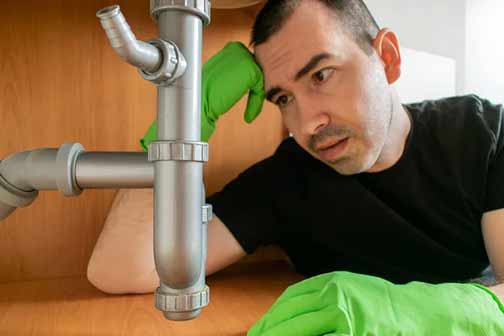Dealing with a clogged sewer line can be a messy and frustrating experience, but with the right knowledge and steps, you can quickly identify the issue and address it effectively. In this article, we will walk you through the signs of a main sewer line clog, the possible causes, and the actions you can take to resolve the problem. If you are a homeowner or a property manage, this guide will provide you with valuable information to tackle this issue head on.
Understanding the Main Sewer Line
Before we dive into the details of detecting and resolving a main sewer line clog, let’s first understand what the main sewer line is and its role in your plumbing system. The main sewer line is a large pipe that carries waste and wastewater from your home to the municipal sewer system or septic tank.
The main sewer line is typically buried underground and connects all the drains in your house, including toilets, sinks, showers, and other plumbing fixtures. It plays a crucial role in maintaining the functionality of your plumbing system by ensuring proper waste disposal.
Signs of a Main Sewer Line Clog
Recognizing the signs of a main sewer line clog early on can help you prevent further damage and avoid expensive repairs. Here are some common signs to look out for:
- Multiple clogged drains: If you notice that several drains in your house are clogging simultaneously, it could be a sign of a main sewer line clog. Pay attention to toilets, sinks, bathtubs, and showers.
- Gurgling sounds: Unusual gurgling sounds coming from your drains, especially when using other plumbing fixtures, may indicate a blockage in the main sewer line.
- Sewage backups: One of the most obvious signs of a main sewer line clog is sewage backups. If you notice sewage overflowing from toilets or drains, it is crucial to take immediate action.
- Foul odors: A persistent foul odor in your home, particularly near drains or the basement, could be a result of a clogged main sewer line. Sewage buildup leads to unpleasant smells that should not be ignored.
- Slow drainage: If you notice water draining slowly from sinks, showers, or bathtubs, it could be an indication of a main sewer line clog. While this could also be caused by localized blockages, it is essential to investigate further.

Flushing inappropriate items down the toilet or pouring grease and oil down the drains can lead to clogs in the main sewer line.
Possible Causes of a Main Sewer Line Clog
Understanding the potential causes of a main sewer line clog can help you prevent future occurrences and take appropriate action. Here are some common causes:
- Tree roots: Tree roots are one of the leading causes of main sewer line clogs. Roots can penetrate and grow into sewer pipes, causing blockages and damage.
- Foreign objects: Flushing inappropriate items down the toilet or pouring grease and oil down the drains can lead to clogs in the main sewer line.
- Collapsed or deteriorated pipes: Over time, sewer pipes can collapse or deteriorate due to age, shifting soil, freezing temperatures, or other factors. This can result in blockages and restrict the flow of wastewater.
- Improper installation: If the main sewer line was not properly installed or has design flaws, it may be prone to clogs and backups.
- Heavy rainfall or flooding: Excessive rainfall or flooding can overwhelm the sewer system, causing backups and clogs in the main sewer line.
Detecting a Main Sewer Line Clog
Once you have identified the signs and potential causes of a clog in your line, it is time to take action. While some clogs can be resolved with simple DIY methods, others may require professional assistance. Here are some steps to detect a main sewer line clog:
- Inspect the drains: Start by inspecting all the drains in your house. If multiple drains are clogged, the issue may lie in the main sewer line.
- Check the toilet: Flush the toilet and observe if the water level rises or drains slowly. This can be an indication of a clogged sewer line.
- Listen for gurgling sounds: Run water in different fixtures and listen for gurgling sounds coming from the drains. This may suggest a blockage in the main sewer line.
- Investigate sewage backups: If you experience sewage backups in your drains or toilets, it is crucial to address the issue promptly.
- Contact a professional: If you are unable to detect the source of the clog or the problem persists, it is advisable to seek professional help from a licensed plumber. They have the expertise and tools to diagnose and resolve main sewer line clogs.

Hydro jetting involves using a high-pressure water jet to clear out the blockage and clean the inside of the pipes.
Taking Action to Resolve a Main Sewer Line Clog
Depending on the severity of the clog and your level of expertise, there are several actions you can take to resolve a main sewer line clog:
1. DIY Methods
If the clog is minor and accessible, you can attempt the following DIY methods:
- Plunging: Use a plunger to try and dislodge the clog. Make sure to create a tight seal and apply firm pressure.
- Boiling water: Boil a large pot of water and carefully pour it down the drain to dissolve minor clogs.
- Homemade drain cleaner: Create a mixture of baking soda and vinegar and pour it down the drain. Let it sit for some time before flushing with hot water.
- Sewer snake or auger: Use a sewer snake or auger to manually remove the clog by inserting it into the drain and rotating it to break up or pull out the obstruction.
2. Chemical Drain Cleaners
Chemical drain cleaners can be an option for minor clogs, but they should be used with caution. These products contain strong chemicals that can be harmful to the environment and your pipes if not used properly. Follow the instructions on the label carefully and consider wearing protective gloves and eyewear.
3. Hydro Jetting
For more stubborn main sewer line clogs, hydro jetting is a highly effective solution. Hydro jetting involves using a high-pressure water jet to clear out the blockage and clean the inside of the pipes. This method should be performed by a professional plumber due to the specialized equipment and knowledge required.
4. Pipe Replacement or Repair
In severe cases where the main sewer line is damaged or collapsed, sewer line replacement or repair may be necessary. This typically requires excavation to access the affected pipe section and can be a complex and costly process. Speak with a professional plumber to evaluate the extent of the damage and determine the best course of action.
Preventing Future Main Sewer Line Clogs
While dealing with a clog in your main line can be inconvenient, there are steps you can take to prevent future occurrences. Here are some preventive measures:
- Proper waste disposal: Avoid flushing non-biodegradable items, such as wipes, paper towels, or feminine hygiene products, down the toilet. Dispose of them properly in the trash.
- Avoid pouring grease and oil down the drains: Grease and oil can solidify and cause clogs in the sewer line. Allow them to cool and dispose of them in the garbage.
- Tree root maintenance: Regularly inspect and trim tree roots near your sewer lines to prevent them from infiltrating and causing blockages.
- Regular plumbing inspections: Schedule routine inspections with a professional plumber to identify potential issues before they escalate.
- Install a backwater valve: Consider installing a backwater valve, which prevents sewage from flowing back into your home during heavy rainfall or flooding.
A clog in your sewer main can be a stressful and inconvenient problem to deal with, but by recognizing the signs and taking appropriate action, you can minimize the impact and prevent further damage. Whether you choose to tackle the issue yourself or contact a professional plumber, it is essential to address the clog promptly to avoid costly repairs. Remember, regular maintenance and taking preventive measures can go a long way in preventing future main sewer line clogs. We hope this guide has provided you with valuable insights and solutions to effectively detect and resolve main sewer line clogs.
